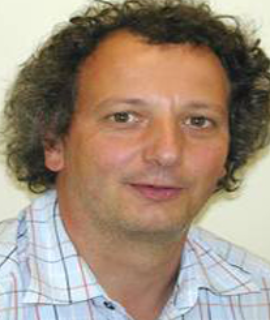Title : Hormone-modulated response modules in the plasma membrane initiating early events in plant cell elongation.
Abstract:
Plant cell elongation growth is regulated by many factors including phytohormones. The onset of cell elongation is regulated by brassinosteroids and phytosulfokines via specific receptor complexes (BRI1 or PSKR1 complex). These receptor complexes initiate responses such H+ extrusion and wall acidification, plasma membrane (PM) hyperpolarization and wall expansion within few minutes after hormone application. These perception/response modules appear to have a common basic composition, which – in addition to the specific receptors – comprises co-receptors, proton pumps and ion channels. For the BRI1 response modul we depicted the molecular and functional properties by using state-of-the-art spectro-microscopical tools with quantitative readout such as high resolution CLSM, FLIM and FRET. The data were used for the establishment of a quantitative computational model predicting missing components, regulatory determinants and parameters.
We also observed that the information about cell wall integrity, that rapidly modulate cell elongation as well, appear to be processed by a BRI1-dependent response module as well.
In future we would like address problems such as, how are these response modules distributed in the PM spatially, what are their dynamics and what are the functional consequences, when complex formation and dynamics are disturbed? The data will be used for the refinement of our multi-dimensional computational model deepening our understanding of the response modules´ action in vivo.



